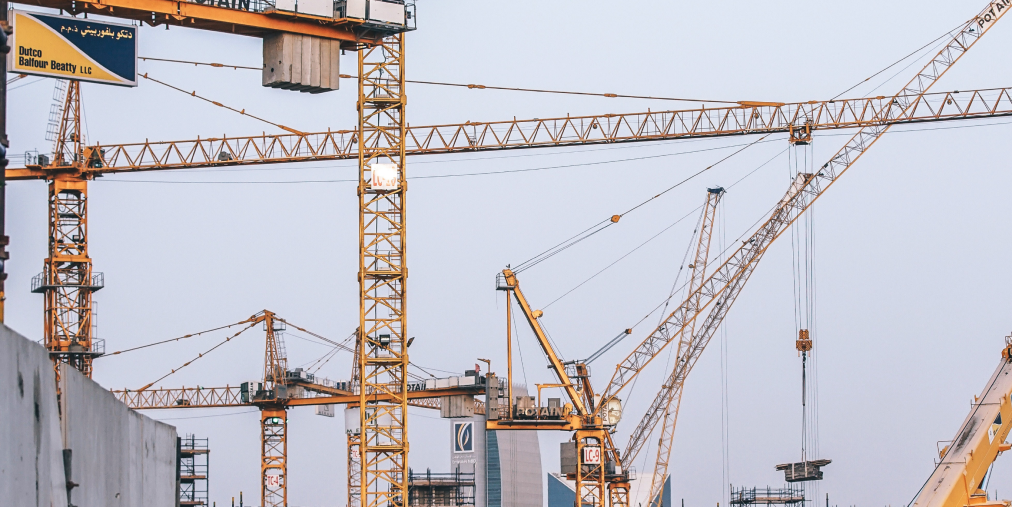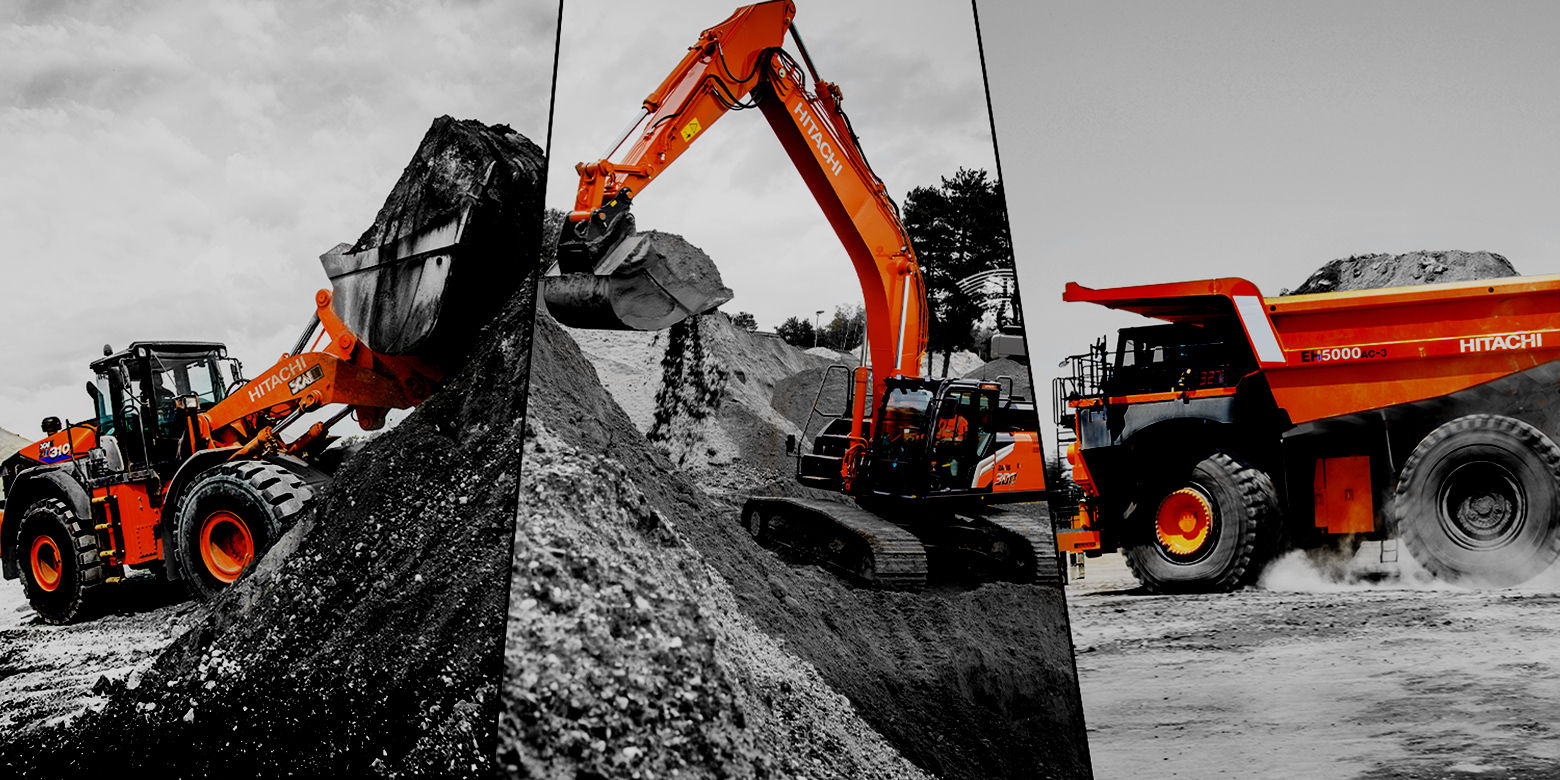Aerial Lift Rental in Tuscaloosa AL: Protect and Efficient High-Reach Equipment
Aerial Lift Rental in Tuscaloosa AL: Protect and Efficient High-Reach Equipment
Blog Article
Checking Out the Financial Advantages of Leasing Construction Equipment Contrasted to Owning It Long-Term
The decision in between owning and renting out construction equipment is critical for economic monitoring in the market. Renting offers immediate price financial savings and functional flexibility, permitting firms to allocate sources extra effectively. In contrast, possession features significant long-lasting economic commitments, including maintenance and devaluation. As contractors evaluate these choices, the influence on money circulation, task timelines, and modern technology accessibility becomes significantly significant. Understanding these subtleties is important, particularly when thinking about just how they straighten with particular job demands and financial approaches. What factors should be prioritized to make certain optimal decision-making in this facility landscape?

Price Comparison: Renting Out Vs. Having
When evaluating the monetary implications of leasing versus owning construction tools, a complete cost comparison is necessary for making notified decisions. The choice in between renting and owning can dramatically affect a business's lower line, and recognizing the linked costs is critical.
Renting out building and construction tools typically includes lower ahead of time prices, enabling services to designate funding to other functional needs. Rental arrangements frequently include adaptable terms, allowing companies to access advanced equipment without lasting commitments. This flexibility can be especially beneficial for short-term jobs or varying work. Nonetheless, rental expenses can collect with time, possibly exceeding the cost of possession if equipment is required for an extensive period.
On the other hand, having building and construction tools requires a substantial first financial investment, together with recurring prices such as insurance coverage, funding, and devaluation. While ownership can bring about long-term cost savings, it likewise ties up resources and might not give the very same level of versatility as leasing. Additionally, possessing devices necessitates a commitment to its application, which might not always straighten with project demands.
Inevitably, the decision to own or rent must be based upon a detailed analysis of details job demands, monetary capacity, and long-lasting calculated goals.

Upkeep Obligations and expenses
The option in between renting and possessing building and construction tools not only involves monetary considerations but also encompasses recurring maintenance costs and responsibilities. Possessing tools calls for a significant dedication to its upkeep, that includes routine assessments, repair work, and potential upgrades. These duties can promptly accumulate, resulting in unforeseen prices that can stress a spending plan.
In comparison, when leasing tools, upkeep is generally the duty of the rental company. This setup allows contractors to avoid the financial problem connected with damage, as well as the logistical obstacles of scheduling repair work. Rental agreements often consist of arrangements for upkeep, meaning that specialists can concentrate on completing jobs rather than fretting about devices problem.
In addition, the diverse series of tools readily available for rental fee makes it possible for firms to select the most recent designs with sophisticated modern technology, which can improve effectiveness and efficiency - scissor lift rental in Tuscaloosa Al. By going with rentals, services can stay clear of the long-lasting liability of devices depreciation and the connected maintenance frustrations. Ultimately, examining maintenance costs and responsibilities is crucial for making a notified decision regarding whether to have or lease construction devices, substantially influencing general task expenses and functional effectiveness
.png)
Devaluation Impact on Ownership

A substantial factor to take into consideration in the choice to possess building and construction devices is the impact of devaluation on overall possession costs. Depreciation represents the decrease in value of the equipment with time, influenced by factors such as usage, damage, and improvements in innovation. As equipment ages, its market value diminishes, which can significantly affect the owner's monetary placement when it comes time to offer or trade the tools.
For building firms, this depreciation can equate to considerable losses if the tools is not utilized to its fullest possibility or if it becomes obsolete. Owners need to account for devaluation in their economic projections, which can bring about greater total costs contrasted to leasing. In addition, the tax effects of devaluation can be intricate; while it might offer some tax advantages, these are commonly balanced out by the reality of reduced resale worth.
Inevitably, the concern of depreciation highlights the importance of comprehending the lasting financial dedication included in owning building and construction devices. Business must carefully assess just how often they will certainly make use of the devices and the possible monetary influence of depreciation to make an enlightened decision regarding possession versus renting.
Monetary Flexibility of Leasing
Renting out building and construction equipment pop over to this site uses significant monetary flexibility, allowing firms to allot resources much more effectively. This versatility is particularly critical in a market identified by changing job demands and varying work. By deciding to rent, companies can prevent the substantial funding expense required for acquiring devices, protecting cash flow for various other functional needs.
In addition, renting equipment makes it possible for firms to customize their equipment choices to certain project needs without the long-lasting commitment related to ownership. This implies that businesses can easily scale their equipment supply up or down based upon present and anticipated project needs. Subsequently, this versatility reduces the threat of over-investment in equipment that might end up being underutilized or out-of-date with time.
An additional financial advantage of leasing is the potential for tax obligation benefits. Rental payments are often taken into consideration operating budget, permitting prompt tax reductions, unlike devaluation on owned tools, which is spread over a number of years. scissor lift rental in Tuscaloosa Al. This prompt expenditure acknowledgment can additionally boost a company's cash setting
Long-Term Job Considerations
When evaluating the lasting needs of a construction service, the decision between having and renting out devices comes to be more intricate. For projects with extensive timelines, acquiring equipment may appear beneficial due to the capacity for reduced general expenses.
The building sector is progressing quickly, with new devices offering enhanced effectiveness and security features. This adaptability is especially valuable for organizations that manage diverse jobs calling for different kinds of equipment.
In addition, financial stability plays an important duty. Owning tools typically entails substantial funding investment and depreciation concerns, while leasing permits even more foreseeable budgeting and capital. Ultimately, the selection in between renting and having needs to be aligned with the tactical purposes of the building and construction company, thinking about both anticipated and current job demands.
Conclusion
In conclusion, leasing building tools uses substantial monetary advantages over long-lasting possession. Inevitably, the choice to rent rather than very own aligns with the vibrant nature of building and construction tasks, enabling for adaptability and access to the most recent tools without the economic problems connected with ownership.
As equipment ages, its market value reduces, which can dramatically influence the owner's financial position when it comes time to offer equipment used to lift heavy objects or trade the equipment.
Leasing building and construction tools provides considerable economic versatility, allowing companies to allot sources extra successfully.Additionally, leasing devices enables business to customize their devices selections to specific project needs without the long-term dedication linked with ownership.In conclusion, leasing building and construction equipment supplies significant financial benefits over long-term ownership. Eventually, the decision to lease instead than very own aligns with the vibrant nature of my website construction tasks, allowing for versatility and accessibility to the most recent tools without the monetary worries linked with possession.
Report this page